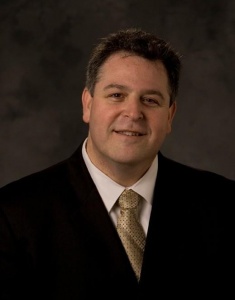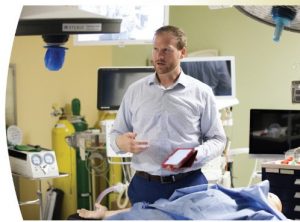With Coronavirus Disease entering India, the scare is real. If you are a health professional, you are expected to know what to do with a person suspected to have infection landing in your hospital but also protect yourself.
Nurses are no doubt the first contact who encounter a patient in an emergency situation and with such a panic created with this disease, you will most likely encounter a patient in the emergency department. It is, therefore, your responsibility to contain the suspected case and to ensure the safety of self and others.
Know the Symptoms of Infection
If anyone is infected with Coronavirus disease, he/she may present with fever, cough, shortness of breath and breathing difficulties. Remember to be alarmed if a patient reports these symptoms.

Complications include pneumonia, severe acute respiratory syndrome, kidney failure and even death. It is a serious condition and nurses must be aware how to protect themselves and prevent its further spread.
Prepare your team
- Hand washing- Hand washing is the single most effective way to prevent cross-infection of Coronavirus disease. All nursing professionals must practice rigorous hand washing in any health care setting.
- Personal Protective Equipment (PPE)- update your staff on personal protective equipment guidelines.
PPE you are expected to use while caring for a patient with Coronavirus disease are:
- N-95/ N-99 respirator
- Gloves
- Gown
- Face shields
Make sure the nursing staff have access to PPE and receive proper instructions on how to wear them and remove them. It can be crucial to prevent cross-infection among nurses to other health professionals and patients.
Following are the recommendation by World Health Organization (WHO) for nurses and any health professionals who come in contact with suspected Coronavirus patient in different settings:
- Ensure the protocols- Make sure that all nursing staffs are explained what actions needs to be taken if a suspected case arrives in your hospital/institution or if you need to transfer patient using ambulance services.
Example of Journey of Suspected Coronavirus Patient entering a health facility.
- Involve infection control team- Coordinate with infection control nurse to educate about the practices and protocol that need to be followed.
- Isolation or Negative pressure rooms- Identify negative pressure rooms for isolation of the suspected patient.
- Safe Cleaning Practices- Nursing personnel must ensure proper environmental cleaning and disposal of sharps if suspected patient is admitted in your institution. Use of 0.1% sodium hypochlorite and 70% alcohol is found to be effective for decontamination after regular cleaning with detergent for surface cleaning. Read more here: https://www.ecdc.europa.eu/sites/default/files/documents/coronavirus-SARS-CoV-2-guidance-environmental-cleaning-non-healthcare-facilities.pdf
- Telephone Triage- An effective way to prevent further spread of infection is wise to go a step further involve administrative staff and sink in the protocol regarding telephone triaging to decrease panic in community and to identify the patient at risk.
- Educating the Community- Nurses must take initiative to educate others. These practices must be followed by the nurses themselves to prevent spread of infection.
- Hand washing- wash hands in social situation for minimum 20 seconds. To count the seconds sing “Happy Birthday” song twice.
- Avoid touching your eyes and face unnecessarily.
- Avoid close contact with people who have respiratory symptoms like cold, cough and fever.
- Cover mouth and nose when you cough or sneeze. Use tissue and throw it in dustbin. If tissue is unavailable, use elbow sleeve. Never sneeze in your hands.
References
- World Health Organization. Rational use of personal protective equipment for coronavirus disease 2019 (COVID-19). 2020 Feb 27. Available from: https://apps.who.int/iris/bitstream/handle/10665/331215/WHO-2019-nCov-IPCPPE_use-2020.1-eng.pdf
- World Health Organization. Available from: https://www.who.int/health-topics/coronavirus
- Coronavirus Disease (COVID-19). American Nurses Association. Available from: https://www.nursingworld.org/practice-policy/work-environment/health-safety/disaster-preparedness/coronavirus/




